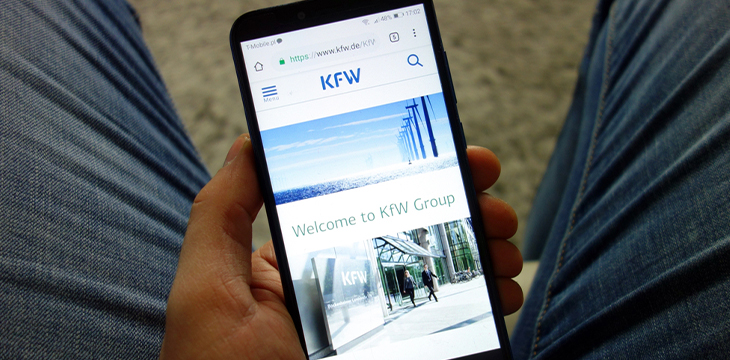|
Getting your Trinity Audio player ready...
|
Germany’s state-owned development bank, KfW, has selected Boerse Stuttgart Digital (BSD) as its infrastructure partner for the upcoming blockchain-based digital bond.
KfW has been exploring blockchain technology in its bond issuance for years, issuing its first-ever digital bond in 2022. In July, it issued a $4.3 billion digital bond, the largest in the world. However, the bond wasn’t fully on-chain and relied on a centralized platform. Days later, it issued another $108 million digital bond, this time entirely on the blockchain.
The bank is set to issue its second on-chain bond, which will rely on BSD’s technical infrastructure, the two entities revealed in an announcement this week. BSD is the digital asset and blockchain arm of Boerse Stuttgart, the sixth-largest exchange group in Europe. It offers tokenization and other infrastructure services to institutional clients and digital currency trading services to retail clients, accounting for 20% of the exchange group’s revenue last year.
BSD will secure the private keys and manage wallets for KfW throughout the bank’s digital bond issuance and redemption.
Ulli Spankowski, BSD’s managing director, described the partnership as a step up for the company as it seeks to become the ultimate one-stop shop for institutional clients in the digital assets space.
“As a pioneer in digital assets, we aim to significantly shape the digital European market infrastructure. The expansion of our offering for institutional clients and our involvement in KfW’s next blockchain-based digital bond mark a milestone in the digital transformation of the financial sector,” Spankowski commented.
KfW, the world’s third-largest development bank, will issue the upcoming digital bond as part of the regional central bank’s ongoing digital euro trials.
“The utilisation of new technologies as part of the ECB trials enables us to technically process a ‘delivery vs. payment’ transaction and thus supports our digital learning journey,” commented KfW’s Gaetano Panno.
Delivery vs. payment is one of the key benefits of blockchain in the bond sector. Also known as atomic settlement, it involves the simultaneous settling of securities and payment, reducing counterparty risk.
DekaBank, another German lender, also issued in July a digital bond on its private institutional blockchain network SWIAT as part of the ECB’s wholesale digital euro trial.
Watch: Determining blockchain’s economic value

 03-04-2026
03-04-2026 




